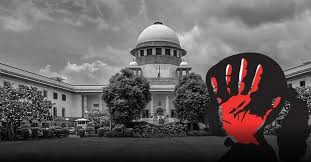L.S. Jackson, J.@mdashI think the decision of the lower appellate Court in this case must be set aside. The plaintiff alleged that the defendant had erected a challa upon a piece of ground to which the plaintiff was separately entitled; and be prayed that this challa might be pulled down by order of Court. The Sudder Ameen found the plaintiff''s allegation to be true, and ordered the demolition of the challa.
2. On appeal, the second Subordinate Judge found that the land did not belong to the plaintiff, and, nevertheless, holding that the defendant was not at liberty to erect any building upon the land which was common property without the consent of his co-sharers, confirmed the order of the Court below.
3. It is contended in special appeal, on the part of the defendant, that the plaintiff was not entitled to a judgment of the Court upon a ground which was quite inconsistent with the case he made.
4. I think this was so. The plaintiff alleged the defendant to have done him wrong by erecting this challa upon ground which belonged to plaintiff exclusively, and on failure of that allegation his suit ought to have been dismissed and it appears to me that even if his allegation had been that the defendant had erected the challa upon common land, without the express permission of him, the plaintiff, he would not have been entitled to the decree he sought for.
5. The respondent has argued that this was not a ground taken in the written grounds of appeal. We thought however that it was a fair and reasonable ground to take; and if the fact of its not being contained in the petition of appeal had been brought to our notice, we certainly should have allowed it to be taken. I think this objection therefore has no weight whatever.
6. We are also asked to remand the case in order that it may be tried whether the challa, of which the plaintiff complains, interferes with the joint enjoyment of the premises by the members of the family. No allegation of this sort was made in the plaint, and I do not consider that the plaintiff is entitled to any enquiry of the sort, even if the result of such enquiry could entitle the plaintiff to a decree. I think therefore that the appeal must be allowed and the judgment reversed with costs.
Markby, J.
I am of the same opinion. Even if the allegation had been made in the plaint that the act complained of was an injury to the common enjoyment of the property, still, I have some doubt whether we could have remanded the case for an enquiry on that point, because I have difficulty in seeing how far, and under what circumstances if at all, a Court can, at the instance of one member of the family, interfere in the mode of dealing with the family property by one of the members of an undivided family. But it is unnecessary to express any final opinion upon that point, because the allegation not being contained in the plaint there could be no enquiry upon it.

